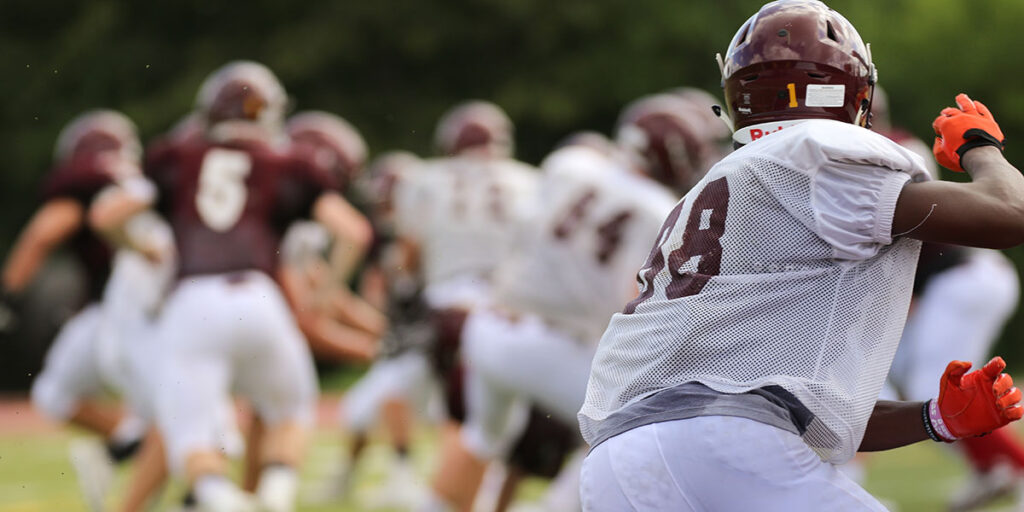The NFL Combine will be starting up this week in Indianapolis, and as in years prior, the on-field competencies and physical abilities of professional football hopefuls will be evaluated and appraised by executives, coaches, scouts and doctors. Recently, however, reviews of player’s character and online activities have become almost as important as their performance at the 40-yard dash and the 225 pound bench press.
A key part of these examinations is how players present themselves on social media. Last year, former NFL scout, Daniel Jerimiah noted in an article for Sports Techie how it has become common practice for officials to scour prospective draftees’ social media accounts for any indication of past misdeeds, allegedly going so far as to pose as attractive female fans interested in meeting players. (Note: SMI will never engage in catfishing or otherwise contact a subject during an investigation.)
Dodging scrutiny for controversial statements on social media has become just as big a part of the NFL as trying to avoid concussions. Players have routinely met criticism in one form or another for speaking out on a variety of issues over Facebook and Twitter.
In June 2015, Minnesota Vikings’ cornerback, Josh Robinson’s apparently drew comparisons between gay marriage and pedophilia, while Detroit Lions wide receiver Calvin Johnson expressed condolences for the victims of the church shooting in Charleston, South Carolina. It is of course their right to express their opinions in their capacity as American citizens. However, each team has their own policy regarding social media usage, and statements which are perceived as particularly vitriolic are liable to leave players subject to hefty fines.
After the Miami Dolphins fined Don Jones for criticizing openly gay player Michael Sam on Twitter, Keenan Robinson of the Washington Redskins told USA Today “They got fined and that’s that person’s freedom of speech that they’re exercising, so things like that I don’t think they should be fined . . . Just try not to say that. Don’t fine them and take their money, that’s their livelihood, they’re feeding their family with that.”
While Robinson is correct that the First Amendment protects freedom of speech, it more specifically states that Congress shall make no law abridging freedom of speech. The NFL is not Congress. Players are effectively part of the NFL brand and the league has a vested interest in not just their economic performance, but also their marketability.
That being said, the NFL combine is the equivalent of a job interview. Prospective employers of course care about your prior work performance and experience, but they are also looking for someone suited to the job.
For NFL players, part of their duty is to provide a name which fans will want to have emblazoned on the back of a jersey without conveying any polarizing sentiment. Once more, many of these players are being followed on Twitter by young children who might idolize them. Catfishing aside, the NFL delving into player’s social media presence might not be as uncalled for and creepy as it would seem at first blush
Featured image taken by Geoff Scott via Unsplash




